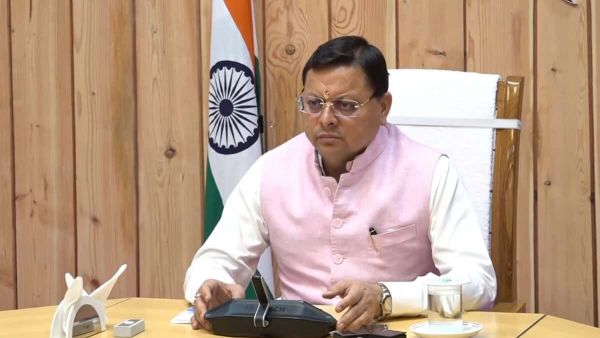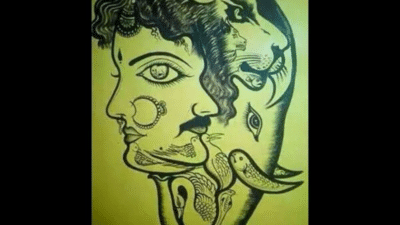
Dehradun: Uttarakhand Chief Minister Pushkar Singh Dhami on Wednesday described the Emergency as the darkest chapter in India’s democratic history, saying it was a time when the government of the day tried to crush the soul of the Constitution.
Addressing a gathering of people who stood against the Emergency, Dhami said it was the result of one person’s obstinacy and dictatorial attitude.
“Fifty years ago on this day, the Emergency was imposed on the country, and an attempt was made to crush the soul of the Constitution. Parliament was strangled, the freedom of the press was held hostage, and the dignity of the judiciary was shredded,” Dhami said.
The fundamental rights of millions across the country were trampled upon, he said.
“In those dark days of the Emergency, the then government, intoxicated with power, ruthlessly suppressed all opposition leaders, hundreds of journalists and every voice that was being raised to protect democracy. The entire country was turned into an open prison. Thousands of democracy supporters were thrown into jails,” he said.
“And all this was the result of one person’s obstinacy and dictatorial attitude,” he said, referring to the then prime minister Indira Gandhi.
“She did it out of the fear of losing power after the Allahabad High Court held her guilty of electoral corruption,” he said.
Great leaders like Loknayak Jaiprakash Narayan, Nanaji Deshmukh and Atal Bihari Vajpayee, despite being incarcerated, worked to awaken the youth towards democracy, Dhami said.
He also honoured the “soldiers of democracy” who raised their voice against the Emergency, went to jail and suffered atrocities.
Opposing the suppression of power, students of universities and colleges across the country took to the streets against dictatorship and started a public awakening in favour of democracy, he said.
The protest that started from educational institutions in cities like Delhi, Banaras, Prayagraj, Patna, Jaipur, Pune, Bengaluru gradually turned into a nationwide people’s revolution, he said.
Many social-cultural organisations, including the Rashtriya Swayamsevak Sangh and the Akhil Bharatiya Vidyarthi Parishad, also launched a movement with all their might to revive democracy. Thousands of youth went to jail, endured torture, but did not bow their heads in front of injustice, he said.
After the freedom struggle of India, it was the second biggest people’s revolution that liberated India from the monopoly of power, Dhami said.
-
DIY Face Steaming at Home: Benefits and How to Do

-
Optical illusion: This viral puzzle contains several concealed animals; only 1% of people can find them all

-
Study reveals how 'unhealthy' seed oils can help prevent heart diseases and type 2 diabetes

-
Debenhams floaty dress is perfect for summer holidays - and it's less than £40 right now

-
Every Version of You Is a Distraction — The Gita Says the Real You Has No Identity
